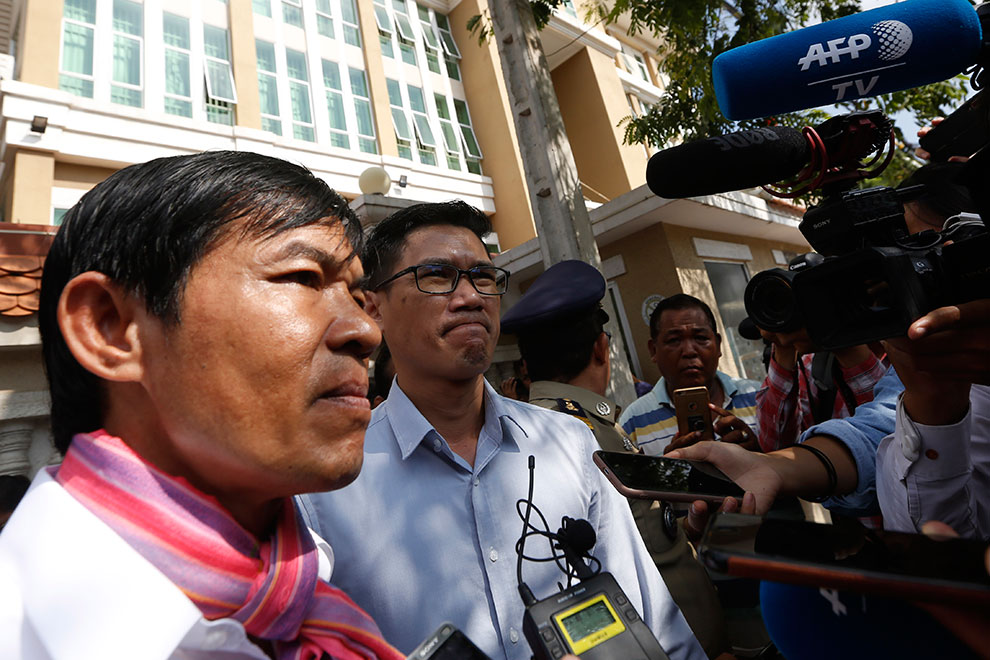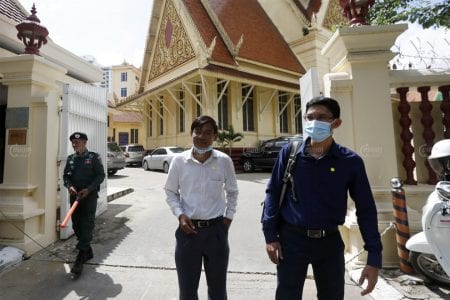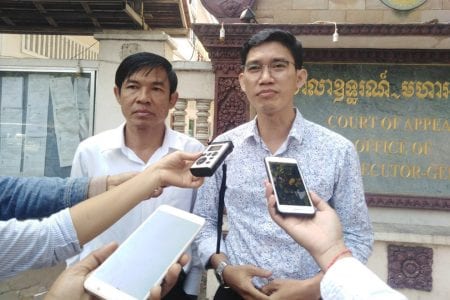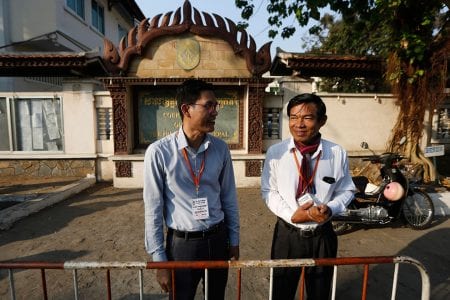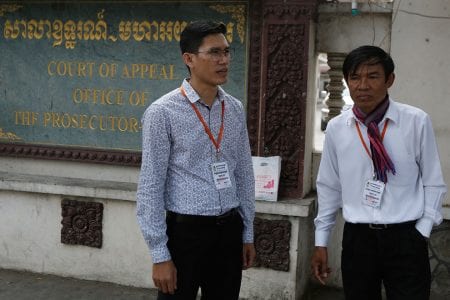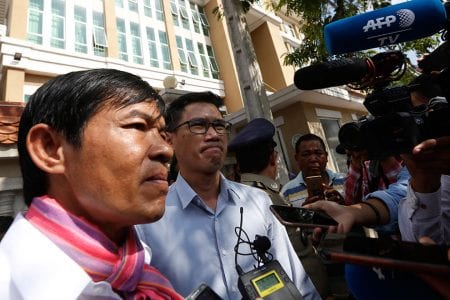A Radio Free Asia spokesman said the U.S. broadcaster was still working through some unspecified issues despite the Cambodian government saying it would welcome a reopening of the RFA’s Phnom Penh bureau.
RFA shuttered its local office in 2017 amid mounting pressure on media and the political opposition that saw dozens of radio stations shuttered and media outlets hit with huge disputed tax bills that pushed them to close. Opposition leader Kem Sokha was arrested — accused of treason by conspiring with the U.S. to overthrow the government — and his Cambodia National Rescue Party dissolved two months later in November 2017.
Two RFA journalists, Uon Chhin and Yeang Sothearin, were arrested during the same month, accused of espionage and charged with supplying a foreign state with information prejudicial to national defense. During their trial earlier this year, they were accused of continuing to supply news reports to RFA even after its local office closed, though it was not explained how that would amount to espionage. The verdict into their case has been repeatedly delayed.
The ruling Cambodian People’s Party swept every parliamentary seat in a national election in July last year, cementing its hold on power. In the past month, it has begun to lift some of the restrictions placed on opposition members and institutions.
Sokha, the CNRP president, still faces a treason trial, but his court supervision terms have been relaxed, freeing him from de facto house arrest. RFA and another U.S. state-run broadcaster, Voice of America, have been given a tentative green light to return to Cambodia’s airwaves.
Meas Sophorn, spokesman of the Information Ministry, said on Tuesday that Information Minister Khieu Kanharith and an RFA representative met on Nov. 22, with Kanharith welcoming RFA’s return under certain conditions: notably, that RFA stops calling the Cambodian government “the Phnom Penh regime” or “the Hun Sen regime,” phrasing that can imply authoritarianism.
“The media sector in Cambodia is developing from day to day,” Sophorn said.
RFA spokesman Rohit Mahajan said in an email that the reopening of the outlet in Cambodia was under consideration — but not certain — following the meeting.
“There are still a number of issues that would need to be resolved before any such move were to happen,” Mahajan said, without elaborating.
Phil Robertson, deputy Asia director for Human Rights Watch, suggested that the ongoing espionage cases against Sothearin and Chhin would be major roadblocks.
“Until Cambodia dismisses the ridiculous charges against RFA journalists Yeang Sothearin and Uon Chhin, it’s really not possible for other RFA journalists to do their job in the country,” Robertson said.
“The government needs to make concrete guarantees that journalists from RFA and other independent media outlets will not face harassment, intimidation and arrest for just doing their jobs,” he said.
So far, nothing said by Kanharith indicated that journalists would be protected, he said.
“So we are still far from the kind of breakthrough needed for a restoration of the situation that existed in 2017, before the government’s crackdown on the independent media started,” Robertson said.
Local rights group Adhoc’s spokesman, Soeng Senkaruna, said strong media — including critical voices — was considered a pillar of democracy.
“The government should not put conditions on the media because they have the right to criticize as part of their profession,” Senkaruna said.
However, Pen Bona, president of the Club of Cambodian Journalists and editor-in-chief of PNN, a television station owned by ruling party senator Ly Yong Phat, said the discussions were a good start, and underlined Cambodia’s thriving media sector.
Considering the country’s small population, there were a large number of media outlets, he said. The task for the industry now was to improve their quality, he said.
“We need to strengthen the quality of newspapers, radio and television outlets, and online news sites so society can believe in them,” Bona said. “Now, we can compete against each other based on quality.”


